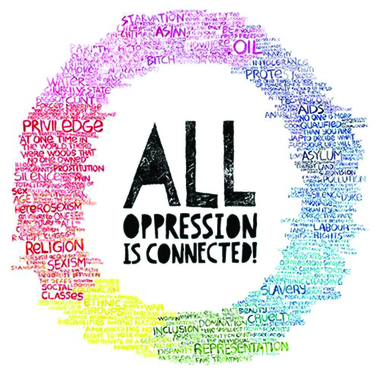Everyday classism

by Elias Briggs
Op-Ed
Of things not talked about enough, classism and the insensitivity surrounding poverty is probably pushed aside the most.
Recently, I was in school and some of the students were planning a class party. I was asked what I would bring. Those who planned to attend had two options: $2 to pay for the pizza or a snack of some kind.
My response, as humiliated as I was, was “Nothing. I’m sorry.” The girl keeping the list then asked, “Why not?” So, I once again, as mortified as I could get out, said, “I’m poor.”
What is odd, is I have lived the considerable portion of my life being financially privileged. Up until about a year ago, I lived in a large three-bedroom house, on three acres of land. I had new clothes, new school supplies, and my dad had a new car.
I was constantly told, despite the shiny and new reality of the world around me, we were, in fact, poor. Of course, when you don’t live in poverty, you think if you don’t own a private jet you are poor, so, I played along.
Fast forward to now, and I live in my mom’s apartment. There are three of us in this tiny two-bedroom apartment, plus our friends who are constantly there. My mom and our roommate work minimum wage jobs, and I, due to scheduling and transportation, have yet to find a place I can work.
My mom and our roommate pay roughly $175 each for rent each month, and the food in our house comes from food stamps. Any money we have left over goes towards toiletries, medicine and phone bills. We have roughly $10 in cash in our home right now.
The purpose of this writing is not sympathy. In fact, despite our financial situation, I am happier with my mother, as the closeness of everyone who comes into our home has a feeling of safety and comfort I never had with my father.
The real purpose of this writing is to explain, despite my past of privilege, I am now learning it’s true; some of us can’t afford two dollars. What’s so difficult is those who can’t afford these seemingly basic and small luxuries are shamed.
We are treated like it is our fault, which it isn’t. No entry level job pays a living wage. There is no way, without having a master’s degree in a high-demand field to make enough money to sustain yourself fully, yet when one doesn’t, we are told we aren’t trying hard enough.
My solution to this problem is this: before we think about money, let’s think of people. Let’s acknowledge people as living, breathing, human beings with different brains, different races, different genders, different backgrounds, and different financial situations.
Beyond all of this, we still feel happiness, and sadness, and anger and embarrassment in the same ways. If someone pointed out your lack of privilege, and the fact you were unable to do something someone more privileged can do, how would that make you feel?
If we took the time to think about these things, we would live in a kinder, braver, happier and more hopeful world. Think before you speak and speak with compassion.
The Gayly. May 16, 2018. 1:09 p.m. CST.





